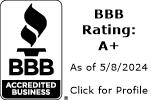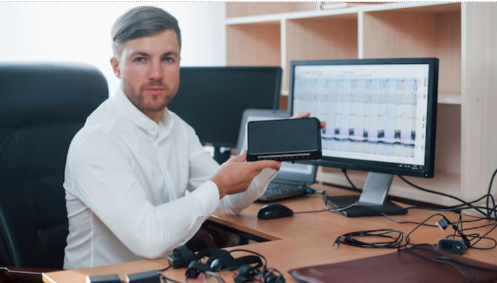Lie detector tests are life-changing events whose results can have far-reaching implications on your credibility and innocence. While polygraph exams have an impressive accuracy score of 70% – 95%, their reliability depends primarily on an examiner’s skills and qualifications.
Ensuring the validity of polygraph exams is a critical step in granting the results legal admissibility. Note that in jurisdictions where lie detector tests are legally admissible, the evaluations must be conducted by accredited examiners.
The good news is that there are thousands of polygraph examiners. However, since not every professional is worth their salt, extensive research is necessary to find the best person for the job.
We’ve done the legwork for you and put together the key considerations while looking for a polygraph examiner.

1. Request for Proof of Professional Qualification
Not everyone who purports to conduct polygraph exams is competent enough to administer the tests. Therefore, insist on someone duly qualified to conduct a lie detector test.
A professional polygraph examiner must have completed a course of study at an accredited school. Ensure the individual graduated from a program approved by reputable accreditation bodies, such as the American Polygraph Association.
More importantly, ask to see actual evidence of professional qualification. Never settle for anyone who says they completed a program in polygraph testing without tangible proof to show for it.
2. Assess the Examiner’s Technical Knowledge
Simply verifying that someone possesses valid proof of graduating from a polygraph school isn’t enough. To establish the examiner’s suitability further, it’s imperative to evaluate their technical competencies.
For instance, the legal admissibility of polygraph exams varies from one state to another. In jurisdictions where these tests are admissible, certain conditions are necessary to ensure their validity.
One such requirement is that defendants must willfully submit to taking a polygraph test. And even with their full consent, they do not cede their Fifth Amendment Rights.
These are some of the nuanced details only a professional polygraph examiner would know.

3. Evaluate The Person’s Soft Skills
Besides technical qualifications, certain soft skills are necessary to conduct successful lie detector tests.
First, a polygraph examiner must be an excellent communicator.
Good communication skills are necessary in preparing defendants for lie detector tests. It helps establish a rapport with the examinee, articulate expectations, and ask proper questions.
A polygraph examiner must also possess remarkable observational and analytical skills to prepare objective reports. Besides, they should collaborate seamlessly with other stakeholders.
4. Ask for Relevant Licenses
If you plan to take a polygraph exam in a state where these tests are legally admissible, it’s important to have the evaluations administered by an examiner licensed to practice in that state. Therefore, you’ll need to ask for proof of license.
Ensure all licenses are valid and issued by the state in question. Besides, check that the licensing body hasn’t taken any disciplinary action against the polygraph examiner.
If the individual has had their license previously revoked, that’s your cue to look elsewhere.
5. Insist On Substantial Experience
Accredited polygraph training schools are known to churn out professionals skilled in administering accurate lie detector tests.
But when your credibility is on the line, you’d be wary of taking a polygraph exam conducted by a fresh graduate.
Instead, pick someone with at least five years of experience. The individual must have also administered 100+ lie detector tests to different subjects, including criminal suspects and job applicants.

6. Inquire About Their Polygraph Equipment
Polygraphs have undergone a tremendous evolution since John Augustus Larson invented the first lie detector equipment in 1921. One way to vouch for the credibility of a polygraph examiner is to test their knowledge of modern polygraph machines.
Stoelting’s Elite Polygraph is widely considered the gold standard for computerized polygraph machines. The device is equipped with advanced scoring algorithms that deliver outstanding accuracy compared to its competitors. It combines Stoelting’s extensive experience in physiology, biofeedback, and neuroscience to redefine truth verification.
Even if your preferred polygrapher doesn’t necessarily utilize Stoelting’s Elite Polygraph, the alternative equipment should be up to scratch. More importantly, the examiner should demonstrate an in-depth understanding of the machine.
7. Proof of Ongoing Education Is an Add-On
The polygraph landscape has shifted tremendously over the years. With constantly changing attitudes and emerging trends, it’s important to engage someone with up-to-date knowledge of the industry.
Choose a polygraph examiner who regularly pursues further education.
Ongoing training provides cutting-edge knowledge on evolving polygraph equipment and techniques while underscoring the examiner’s commitment to their profession.

Blending Examiner Experience with Personal Preparation for Polygraph Success
Implementing these pointers will help you find and vet the right polygraph examiner. However, it shouldn’t discount the significance of in-depth preparation.
To guarantee the accuracy of polygraph results, pre-test interviews are critical. These interviews will enable you to build a rapport with the examiner, a critical step in averting lie detector anxieties. Other ways to prepare for a polygraph test include eating healthy meals, staying hydrated, and wearing comfortable clothing. Above all, ensure you’re psychologically disposed to take the test.






